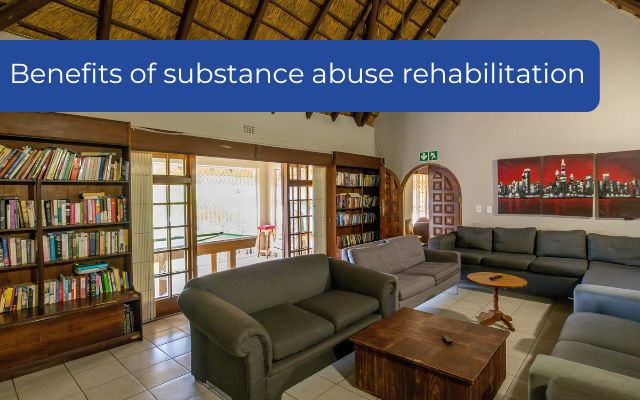The Best Guide To Narconon Africa
The Best Guide To Narconon Africa
Blog Article
Some Known Questions About Narconon Africa.
Table of ContentsNarconon Africa for BeginnersWhat Does Narconon Africa Mean?An Unbiased View of Narconon AfricaGetting The Narconon Africa To Work4 Easy Facts About Narconon Africa ShownThe Ultimate Guide To Narconon AfricaThe Ultimate Guide To Narconon Africa
In a series of papers with Manudeep Bhuller and Katrine V. Lken, we conquer these data challenges and the nonrandomness of imprisonment, using new insights right into just how incarceration impacts recidivism, work, children, and criminal networks - Drug recovery program. Figure 1 Our job researches the effects of incarceration in Norway, a setting with 2 essential advantagesWe can further connect this information to various other member of the family, consisting of youngsters and brother or sisters. We have details on co-offending that allows us to map out criminal networks for observed criminal activities. Second, we can utilize the random assignment of criminal situations to courts that differ in their tendencies to send out defendants to prison.
Some courts send out offenders to prison at a high price, while others are extra lenient. We measure a court's stringency as the average imprisonment rate for all various other cases a court handles, after regulating for court and year fixed effects, which is the degree of arbitrary task. This quasi-random job of court stringency can be utilized as an instrument for incarceration, as it highly anticipates the judge's decision in the existing case, but is uncorrelated with various other case characteristics both deliberately and empirically.
The Buzz on Narconon Africa
Qualities of detainees, consisting of demographics and criminal offense groups, are extensively comparable in Norway and other nations, including the United States, with the exemptions that the US homicide price is a lot higher, and race plays a larger role there too. What stands out as various, especially compared to the United States, is the jail system.
Figure 2In Norway, the typical time invested in prison is a little over 6 months, which is comparable to most other Western European nations. This contrasts with average US jail time of nearly three years, which remains in big component the factor the USA is an outlier in its imprisonment rate compared to the remainder of the world [Figure 1]
The 5-Minute Rule for Narconon Africa
This provides much even more separation in between small and solidified offenders than exists in the USA. There is no congestion in Norwegian prisons and far better personal security, with each prisoner being assigned to their very own cell and a greater inmate-to-staff proportion than in the USA (https://www.dreamstime.com/narconon0346_info). Jails in Norway additionally provide well-funded education, medicine therapy, mental wellness, and task training programs
Our research on the effects of incarceration on the offender, utilizing the arbitrary project of judges as an instrument, returns three Substance abuse treatment vital findings. Initially, jail time dissuades better criminal habits. We locate that incarceration decreases the possibility that an individual will certainly reoffend within five years by 27 portion factors and decreases the equivalent variety of criminal costs per person by 10 costs.
The Facts About Narconon Africa Revealed
We locate substantial decreases in reoffending possibilities and advancing charged crimes even after accuseds are released from prison. Our 2nd outcome is that prejudice as a result of choice on unobservable specific characteristics, if ignored, brings about the wrong conclusion that time invested in jail is criminogenic. If we simply compare criminal accuseds sentenced versus those not sent out to prison, we discover favorable associations between imprisonment and succeeding crime.
This stands in contrast to our analysis based on the arbitrary assignment of courts, which discovers an opposite-signed result. Third, the decrease in criminal offense is driven by individuals who were not working before incarceration. Among these individuals, jail time boosts involvement in programs routed at enhancing employability and minimizing regression, and this ultimately elevates work and incomes while dissuading criminal behavior.

Imprisonment causes a 34 portion factor boost in engagement in work training programs for the formerly nonemployed, and within five years their employment price boosts by 40 percentage factors. At the same time, the chance of reoffending within five years is cut by 46 percent factors, and there is a decline of 22 in the ordinary variety of criminal fees.
Get This Report on Narconon Africa

A possible explanation for the distinction is that Norway's jail system differs considerably, both in regards to prison-term size and prison problems, from the US prison system. While comprehending the effects of imprisonment on the transgressor is a crucial primary step, catching spillover results is also crucial for assessing criminal justice policy and developing efficient prison systems.
More About Narconon Africa

Average least squares estimates reveal that children of incarcerated fathers are 1 portion factor most likely to be billed with a crime, about a mean of 13 percent, and show no effect on school qualities. Using our court stringency instrument, we locate no analytical evidence that a daddy's incarceration affects a youngster's own criminal activity or school qualities, yet we are not able to dismiss modest-sized impacts.
The Buzz on Narconon Africa
We specify criminal teams based on network web links to prior criminal instances. When a criminal network member is put behind bars, their peers' probability of being billed with a future criminal offense decreases by 51 percent points over the next 4 years - https://fliphtml5.com/dashboard/public-profile/ssxbu?lang=en.
Report this page